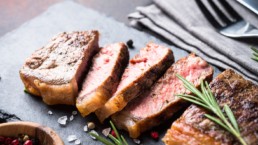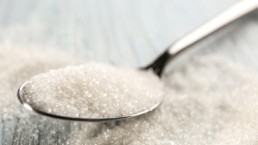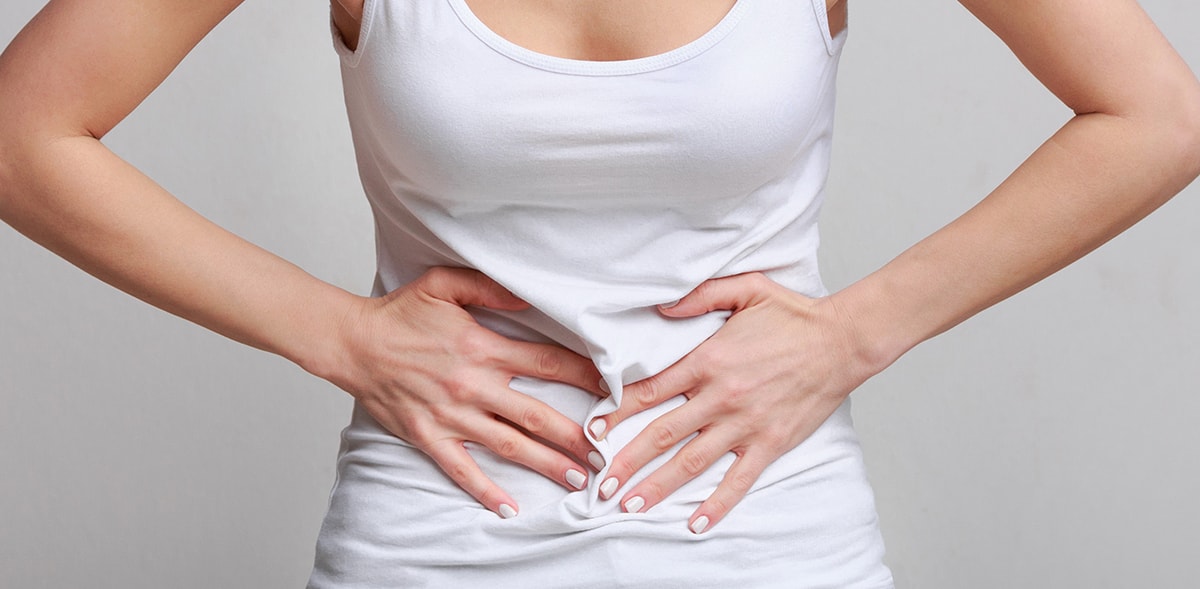“Oh, I’m just getting old.”
Have you ever said this to yourself? When your body feels achy in the morning or you’ve gained a few extra pounds or you can’t find your glasses (and they’re on top of your head)?
Listen, I get it. I’ve said it, too—as early as the year before I turned 30! I know, it’s ridiculous looking back. But I know I’m not the only one.
When our bodies begin to change, in any way that is new or uncomfortable, we tend to immediately blame age.
“My metabolism is starting to slow down—not like it was when I was in my 20’s!”
“My skin’s starting to get worse as I age. I thought this problem was just for teenagers!”
“I am tired all the time; side effects of getting older, I guess!”
Any of these sound familiar?
Though I understand why you might think so, your age isn’t always the culprit. It’s possible to age into someone who is healthier and feels better than they did in their 20’s—I know I did! Many of these changes are actually caused by sneaky, small habits that may have slipped into your daily routine. Though they don’t seem like a big deal on their own, but when you add them up—day after day after day—they begin to affect the way you act, the way you look, and the way you feel.
But that’s good news, right? Because it means that (unlike your age) you can change these habits, too! Let’s look at just a few of these “I’m just old” excuses, and see how you can begin flipping them on their head:
“My metabolism is slower now that I’ve older and I’ve gained weight that I can’t keep off.”
Sure, there’s some truth to this statement; your metabolism does slow as you age. But no matter your age, your weight is a factor of the foods you eat, what you drink, and how much exercise you’re getting. Young or old, this doesn’t change!
Metabolism is the process by which your body converts what you eat and drink into energy. During this complex biochemical process, calories in food and beverages are combined with oxygen to release the energy your body needs to function.
Now, as you age, there is a decrease in muscle tissue and an increase in fat tissue that contributes to an overall decrease in basal metabolic rate (the amount of energy expended while at rest). But that doesn’t mean you can’t reverse this with a healthy diet and daily exercise. Let me fill you in on a little secret—you can!
A healthy diet and daily exercise is what will get you to your ideal weight, age be damned. So start taking a look at what may have crept into your diet over the years—maybe a little sugar and milk in your daily coffee, just a few pieces of bread before dinner, or how about those margaritas with your girlfriends every Thursday night? And how much less exercise are you getting than you did when you were at your ideal weight? Do you still move your body the way you used to—or do you move it at all?
When you really sit down and review what you’ve been doing for the past couple of years, you may see what actually may have been contributing to the weight gain. Remember that you can turn your health around at any age!
“Now that I’m older, my face is always red and my skin just looks crappy.”
Back in my late twenties and early thirties my skin was so red and the texture was so ruddy. It would also get really warm to the touch. It was so frustrating and I just couldn’t understand it. I went to the dermatologist and he diagnosed it as Rosacea—a skin condition that seems to have no specific cause other than that many people often get as they get older.
“Uggggh,” I thought to myself. “Is this what happens when you get old?!”
Some prescription cream and a low dose of antibiotics worked for a little bit, but the Rosacea always came back—and I didn’t feel good about taking an antibiotic for the rest of my life. Fast forward years later—after curing my horrible digestive issues with a huge diet overhaul—my skin completely cleared up! And, to this day, it’s smooth and calm—better than it ever was in my 20’s!
My skin condition never had anything to do with getting older. My skin looks healthier now than it did when I was a teenager. Instead, the effects on my skin were caused by the damage done to my digestive system—which stemmed from my poor diet habits. Once again, fixing the problem was entirely in my control. And it’s in yours, too!
“I just can’t move like I used to!”
When you wake up in the morning how do you feel? Have you noticed that maybe your back feels stiffer, or that you can’t bend your legs as you stretch out of bed quite like you used to?
Ah, the joys of getting older—NOT! This is just another excuse piled on the beautiful, natural process of aging.
As adults, we’re not nearly as active and playful as we were as children. Think about it: most jobs have us sitting at a desk for 8-9 hours a day! But, no matter our age, human beings were made for movement.
As crazy as it sounds, exercise actually builds new bone mass! This is why exercise and stretching is so important. Our bones are living tissues and weight-bearing exercises cause new bone tissue to form. Bone and muscles become stronger when muscles push and tug against bones during physical activity. Stretching also helps increase circulation and blood flow.
So sure, you could lose some flexibility as you age—but only if you’re not taking the time to stretch those muscles and build those bones! It’s basically a “use it or lose it” situation. And you can start using them again any time you want!
“Once I hit {fill-in-your-age-here}, my joints started aching all the time.”
In my early 30s, my wrists started to ache. The dull pain eventually crept into the rest of my hands, as well
(I know, I know—I was kind of a medical mess in my younger years.)
At the time, I shrugged it off, thinking it was a side effect of getting older (of course). But (of course) the ache completely disappeared when I changed my diet.
Inflammation, which can lead to joint pain, is caused by certain foods such as sugar, dairy, and refined flour (just to name a few)—especially if you are suffering from leaky gut, as I was. After I began to fill my body with nutritious foods and eliminate the foods that were causing me irritation and inflammation, my joints felt just like they used to.
No need to blame age!
“My stomach can’t handle what it used to; I used to be able to eat anything!”
I hear this one a lot. In fact, I remember hearing it from the “grown ups” when I was a kid, too!
Sure, you can’t eat the same things you ate as a kid (at least, not without some physical repercussion). The bodies of young children have been exposed to very little—they can handle a lot, because they haven’t ingested enough food to cause any real damage yet . . .
. . . or, at least, that’s how it used to be. These days, children suffer from digestive issues, diabetes, and autoimmune disorders at younger ages than ever before! I suspect this is due to the commercial food industry becoming more and more processed, and how infrequently we eat a home-cooked meal.
Eliminating processed foods and eating a diet of whole foods allows your bodies to rest, to heal, and to slowly begin to eat a variety of foods that you love again . . . just the healthier version of them! Once you change your diet, your taste buds reset and the foods that are good for your body (at any age!) will taste better than what you used to eat, I promise.
I’m not saying that your age doesn’t contribute to new health problems, but when you consistently fall back on growing older as an excuse, you take away your sense of agency over your own body—basically saying that there is nothing you can do about it and leaving things as they are. Make a commitment to dig a little deeper, and I bet you’ll find a way to get right back to your youthful-feeling self!
Add your bio or whatever you need here – Peter
You May Also Like...
5 Things That Wreak Havoc On Your Immune System – And What You Can Do To Stop Them
It’s that time of year again. Everyone has a cold, the flu, a bug—whatever you want to call it,…
The 3 Major Culprits Behind Anxiety – and What You Can Do to Stop It
Everyone gets anxious. You have bills due before your next paycheck arrives. Your kid’s cough seems…
How I Made the Journey Home to Myself
My journey started about 10 years ago. Actually, if I’m being honest, it started long before…
The Beautiful Lessons in Loss
As I write this, my family is in the depths of grief. We recently lost a beautiful young member of…
A Day In the Well-Lived Life: My Experience With Flotation Therapy
I am little bit of a junkie when it comes to different therapies or treatments that might in some…
Recipe Coming Soon
Lorem ipsum dolor sit amet, consectetur adipiscing elit. Nullam viverra ullamcorper laoreet. Cras…
Recipe Coming Soon
Lorem ipsum dolor sit amet, consectetur adipiscing elit. Nullam viverra ullamcorper laoreet. Cras…
Recipe Coming Soon
Lorem ipsum dolor sit amet, consectetur adipiscing elit. Nullam viverra ullamcorper laoreet. Cras…
4 Major Ways Sugar Affects Your Body, Your Mind, and Your Life
I gave up sugar because I had to. When I got sick several years ago—suffering from inexplicable…










